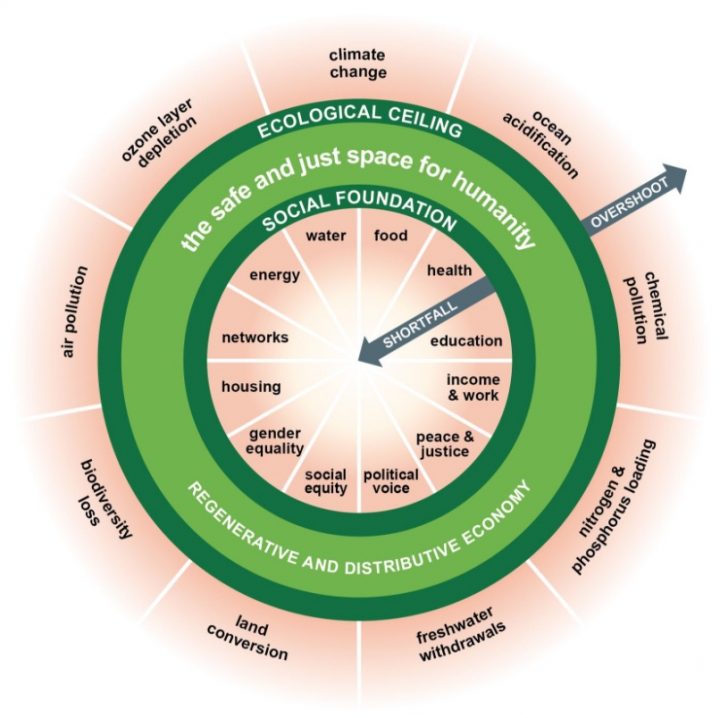Kate Raworth's new book Doughnut Economics: 7 ways to think like a 21st century economist is out. The book calls for a radical re-think of basic economics 101 as it is presently taught.
The basic thesis seems to be that the economy does not exist within a void. The fetish for growth that development theory promotes has stretched the earth's resources in ways that threaten life on the planet as we know it. It has done so while keeping millions below the poverty line. Growth has benefited mostly the top 1%. This does not represent the best use of resources.
While the author talks of the need for a radical re-set, to me her ideas are in many ways built on the foundation of traditional economics. Take for instance the idea that we don't live in a world of limitless resources. That is a basic tenet taught in any introductory economics class. Economics essentially teaches us that we face trade-offs, and that there is no such thing as a "free lunch".
Another example is her depiction of the global economy, not as a pie that needs to be expanded, but of a doughnut that is made up of two concentric circles (see above). The inner circle is the minimum basic needs that all humans living on the planet need to thrive. The outer circle represents the resource limitations of the planet. This is essentially the traditional household budget constraint theory that is taught in more advanced economics classes.
In her TED Talk, the author traces the roots of economics back to Xenophon who used the term within the context of a household seeking to make ends meet. Adam Smith in the Wealth of Nations went further by answering the question why do some nations thrive while others stagnate? Raworth concludes by saying that in the 21st century, the issues we are grappling with require us to look for new tools to understand and deal with what is happening.
Fortunately, those tools already exist. They come from the more obtuse extensions of the economic field, but they have been around for several decades now and are coming into the mainstream. Hopefully, with the release of Doughnut Economics, these new ways of thinking about the economy gain even greater currency among policy makers, the media and ordinary citizens alike.

No comments:
Post a Comment